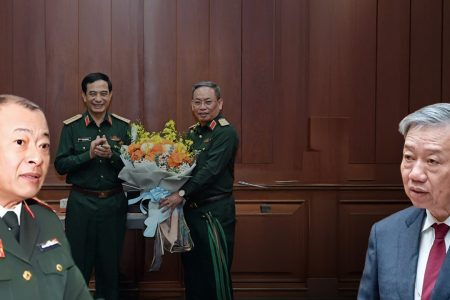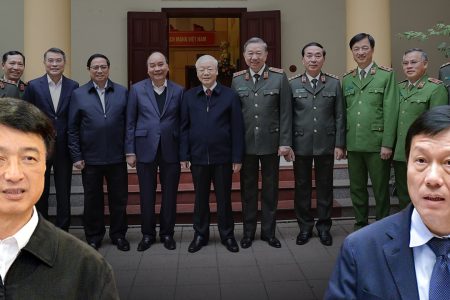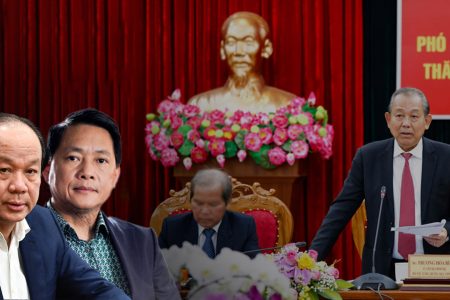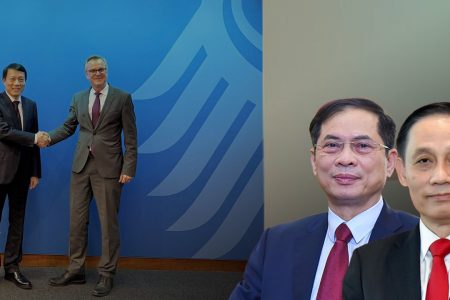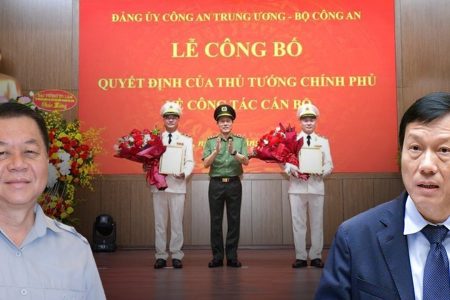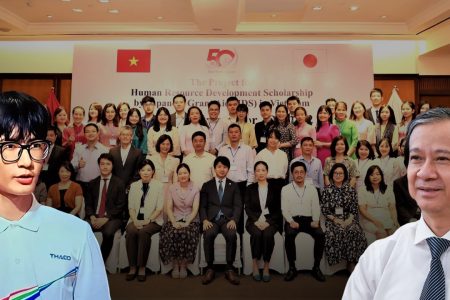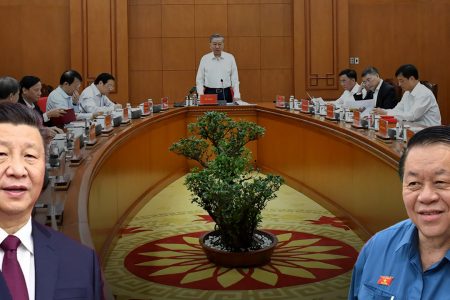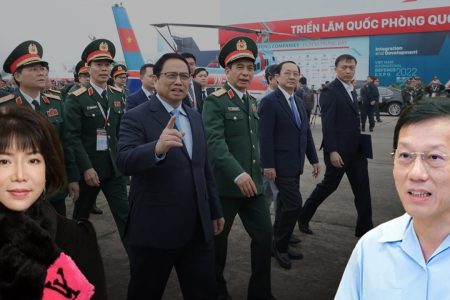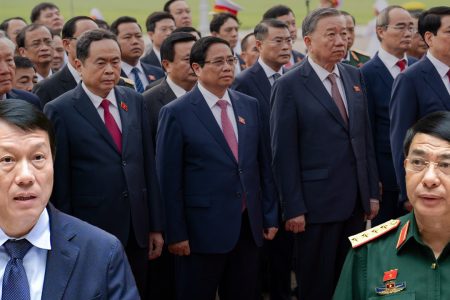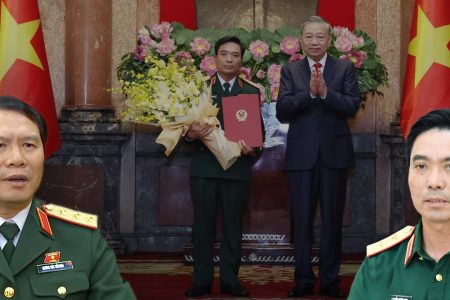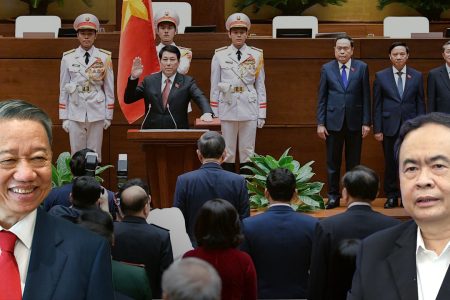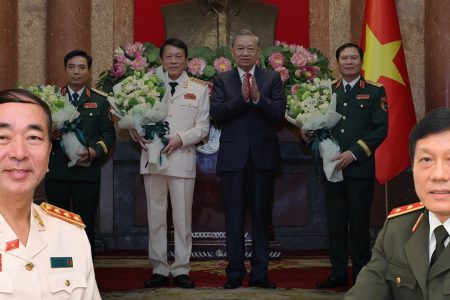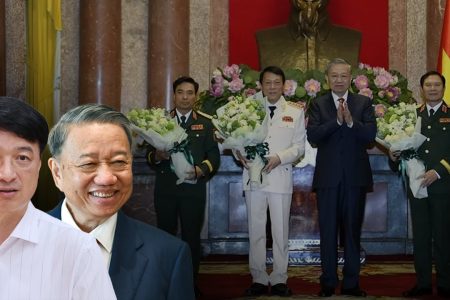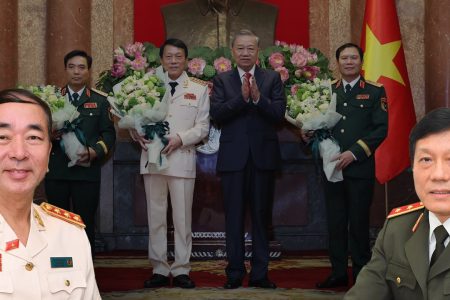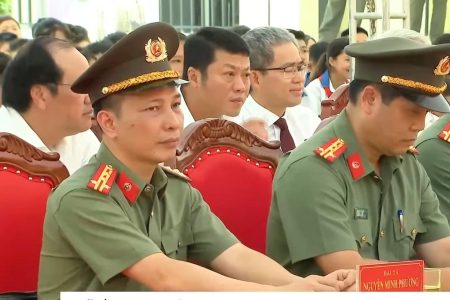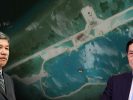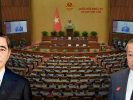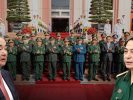
Observing the ongoing first-instance hearing in which 29 land petitioners in Dong Tam commune are being tried on “murder”’ and ‘”resisting on-duty state officials” in relation to the bloody raid in the commune on Jan 9 this year, senior economist Bui Kien Thanh said that this trial, despite the final harsh sentences, will not solve the cause of the problem.
Land dispute arises from larger roots, the economist said, and the ruling Communist Party of Vietnam (CPV) and its government, especially the 13th National Congress, need to proceed a revolution in the reform of the laws regarding land ownership and return land to Vietnamese people.
Talking to BBC News in Vietnamese on Sept 8 from Vietnam’s central city of Hoi An, Mr. Thanh said: “This is a fundamental issue of land ownership for people in Vietnam. For my ancestors for thousands of years, or at least since King Le Thanh Tong came to the South with so many people to expand his realm, the land is the people’s land, the king recognized the reclaimed lands belong to people.
“From hundreds of years, or thousands of years like that, but suddenly in 1975, the new state in Vietnam issued a law saying that the land belongs to the entire people but is under the unified state management. In my opinion, there terms are the complete expropriation of the people’s land. It is something that I find unreasonable for people and history.”
Is the law democratic, understandable and rational?
The senior economist who advised the policy of international integration and development to the Vietnamese government and state for decades ago continued: And how many other things like that, for example in case of Dong Tam the state just said that the land in Dong Tam since 1980 was the land of national defense, but how was it before that? Who gave the army that land?”
“There must be an agency that naturally takes land from the people and then gives it to defense, and then the defense says it is the land of defense, but the question is, what was it like before 1980?”
“So I think about democracy, private property rights and land ownership in Vietnam, the more I need to study, I see Vietnam’s land law, including the law of requisition, non-democratic and really inhuman to the people, to the country, to our grandparents and ancestors.”
“So it’s not just about Dong Tam, there are many other places, including Thu Thiem in Ho Chi Minh City. Now the state naturally grants itself the right to grant this person the right to use this land giving the other land use rights, the ownership of this and that, the question is, what rights does the regime have to make such grants?
“Is it possible that someone here in the name and usurped the management of the people, recognized democracy, then he turned him into the land owner of the people, that is not possible.
“Therefore, I repeat not only the issue of Dong Tam, but the whole country of Vietnam now has such unreasonable problem, so I advise the regime to have the right to quickly study again to return private ownership of land and land to the people, this ownership applies to the entire people.”
“But it is impossible to use the term that land is the property of the entire people, which the State can unify to manage, what kind of management can they take the land and properties of people then give to some? That’s not possible, according to me.”
Do heavy sentences solve the problem?
With the question do the heavy sentences can settle land dispute issues in Vietnam, like in the case in Dong Tam in which land petitioners are taken to court,
Mr. Bui Kien Thanh said “It does not solve the problem because the state robbed the people of land ownership, now people became angry and frustrated because they cannot be resolved, people take action to fight, then the acts of violence like just now are not different of what in the feudalism and capitalism regime the state sent army to seize land from people?
“So, in my opinion, it is to be calm to think about the struggles of the people like in Dong Tam. The state and the government have to think about the origin of ownership from the time of our grandparents and ancestors. It’s not about imprisonment or severe punishment but that’s it.
“In my opinion that approach has not been resolved and will not solve that problem in this whole country of Vietnam.”
Before the question of what the state needs to do, what the government should prioritize to do, what to amend policies, laws, and ways to ultimately solve the aforementioned problem and avoid conflicts such as in Dong Tam in Hanoi, as controversial as in Thu Thiem and many other places, the economist from Hoi An say:
“In my opinion, it is necessary to fundamentally correct the land law, to abolish the current land law and recognize that land ownership belongs to the people and is managed by the people, not the state that acquires that right from the hands of the people, to manage their land, that is to say, of the people, like now.”
“The government says it manages but it goes to grab land from people and assigns to others or companies. This is the reason causing disputes for decades and the state uses forces to deal with land petitioers without implementing the rule of law.
“By the way, I also add that in the world there are also times when the government and the state accept the right to violence, which is called the law of uprising, or known as” insurrection law.” After the French Revolution, the state recognized the right to violence of the French people, but the Vietnamese state now does not recognize that right.
“So these are the basic issues that Vietnam needs to review and I propose the National Assembly, as well as in the government must carefully study the legal issue of Vietnam to admend the Land law. The regime should use old laws Hong Duc of Le Thanh Tong five hundreds years ago as basic for the new law. The regime cannot use its policies from 1975 to grab people’s land.”
How revolutionary in law and feasibility?
When asked if the above proposal is feasible, especially there are opinions among the leadership of the party, state and the parliament saying that there are interest groups, or groups of policy manipulation which are so powerful that the party and the state themselves have to admit, Mr. Bui Kien Thanh said: I see that even here there are only a few months until the 13th National Congress of the ruling party, the problem must be resolved.
“Still feasible or not, we have to look at the responsibilities of those who have to protect the interests of the people.”

“They once said that they made the revolution to successfully rob the government during the August Revolution, they made the revolution to overthrow the feudalism or colonialism of France, and declared to build a democratic, republic, independent, free, happy country, why can’t they revolutionize the Land law that many consider illegal, unreasonable?”
“In fact, the current Land law of the State of Vietnam in my opinion is an illegal law, not just a matter of unconstitutional status.”
“So, it is what the government needs to do. But when they do it, of course, there are difficulties and obstacles, meeting with opposition from interest groups but the duty of the managers, the state leaders, if claiming to be by the people, of the people, for the people, then the duty of the country’s leadership is to do something that is suitable and reasonable for the people.
“It should not allow the unreasonable Land law to exist forever,” economist Bui Kien Thanh concluded.
Thoibao.de (Translated)



